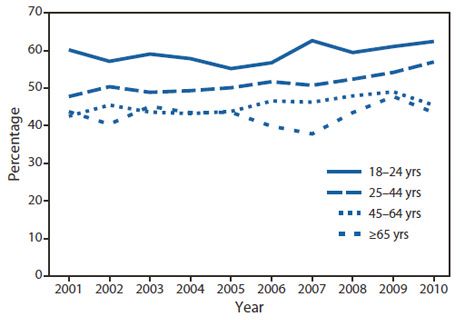New publications
Only 48% of people trying to quit smoking get medical advice
Last reviewed: 01.07.2025

All iLive content is medically reviewed or fact checked to ensure as much factual accuracy as possible.
We have strict sourcing guidelines and only link to reputable media sites, academic research institutions and, whenever possible, medically peer reviewed studies. Note that the numbers in parentheses ([1], [2], etc.) are clickable links to these studies.
If you feel that any of our content is inaccurate, out-of-date, or otherwise questionable, please select it and press Ctrl + Enter.
Although 68.8% of American adults want to quit smoking, very few do so successfully, according to a new report published in the CDC's Morbidity and Mortality Weekly Report (MMWR). The study's authors found that 52.4% of heavy smokers tried to quit on their own for some time over a 12-month period, while only 31.7% sought professional help and treatment.
The number of people who tried to quit smoking during 2001-2010 increased among smokers aged 25 to 64 years, and decreased among older people. Because of the obvious difficulty of quitting smoking completely, the authors suggest that health care providers should provide smokers with brief cessation counseling at every visit to the doctor. Treatment and counseling should be offered to those who want to quit.
Percentage of smokers aged ≥ 18 years who tried to quit in the past year. National Health Interview Survey, United States, 2001 - 2010 MMWR

Of all smokers surveyed, only 48.3% of those trying to quit said they had received good medical advice on how to quit successfully. According to the report, doctors and nurses are most likely to give advice to female smokers and smokers of both sexes over the age of 65.
The list of methods smokers used to quit smoking according to the report is as follows:
- 30% used drugs:
- 14.6% - nicotine patch
- 11.2% - varenicline
- 8.9% - nicotine chewing gum
- 3.2% - bupropion
- 1% - nicotine in the form of a spray or inhaler
- 5.9% received consultations:
- 3.1% - Quitline - a helpline for those who want to quit smoking
- 2.6% - Individual consultation with a doctor
- 2.4% - Group counseling
Women were more likely to use medication to treat nicotine addiction and consult with doctors than men.
The researchers used data from the 2001-2010 National Health Interview (NHI) in their report.
